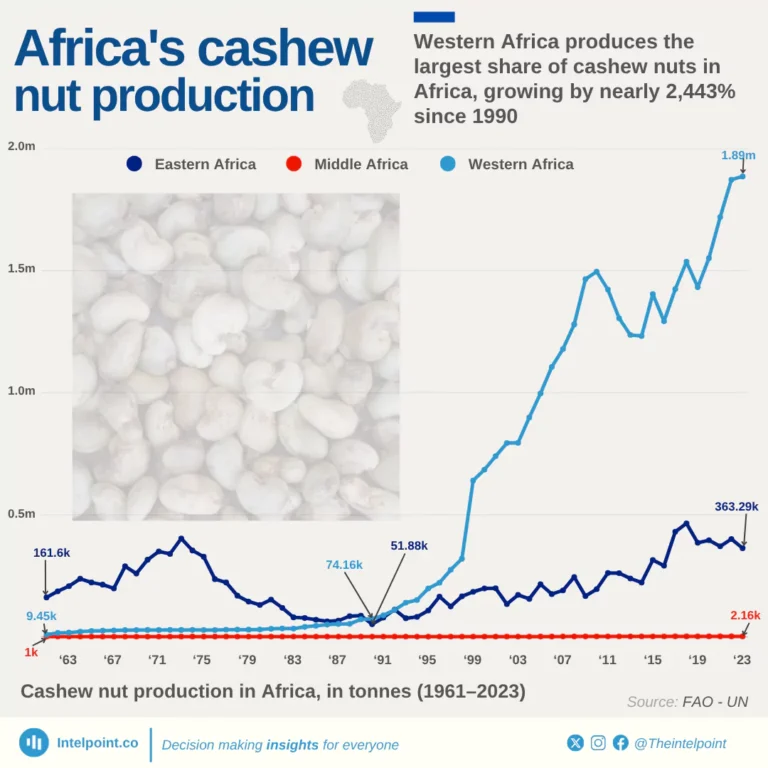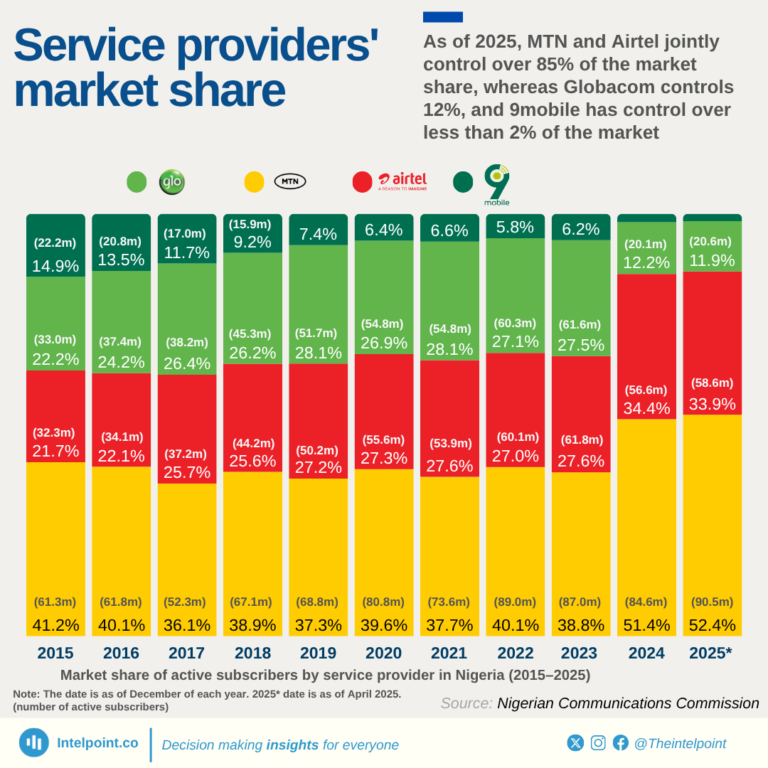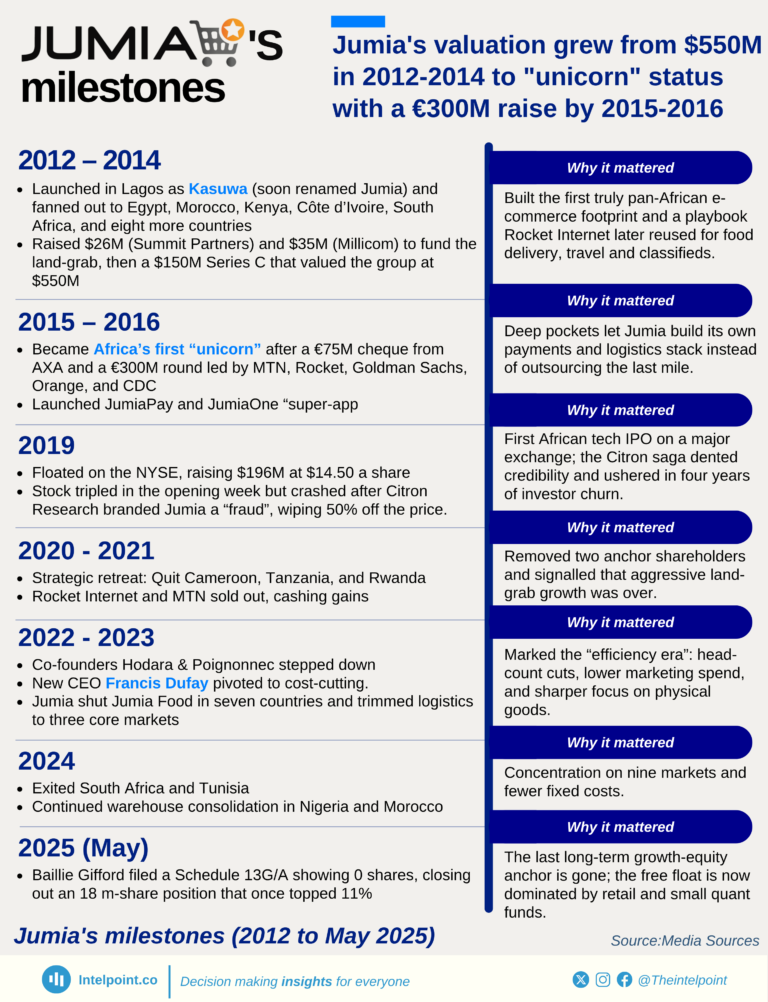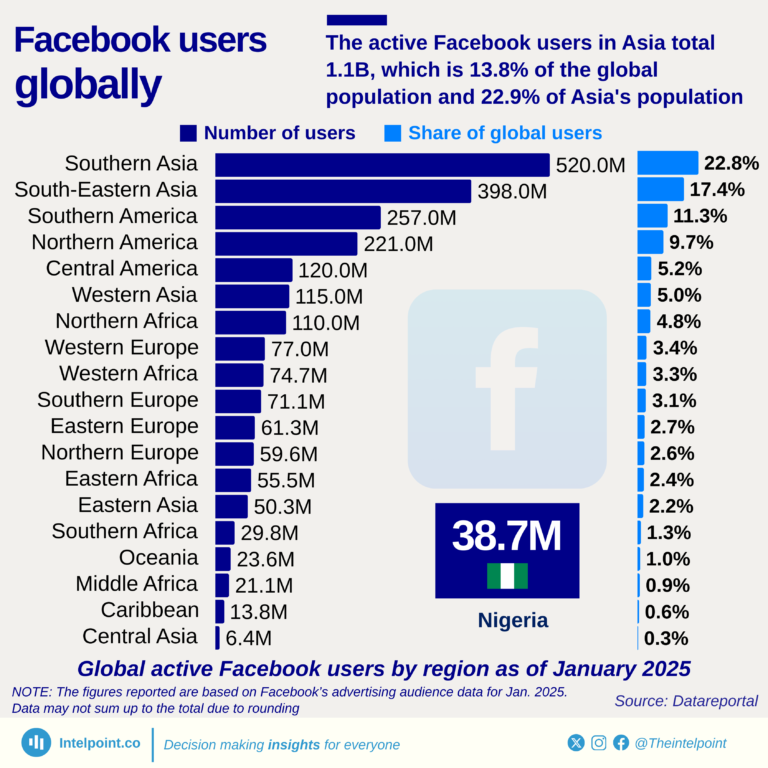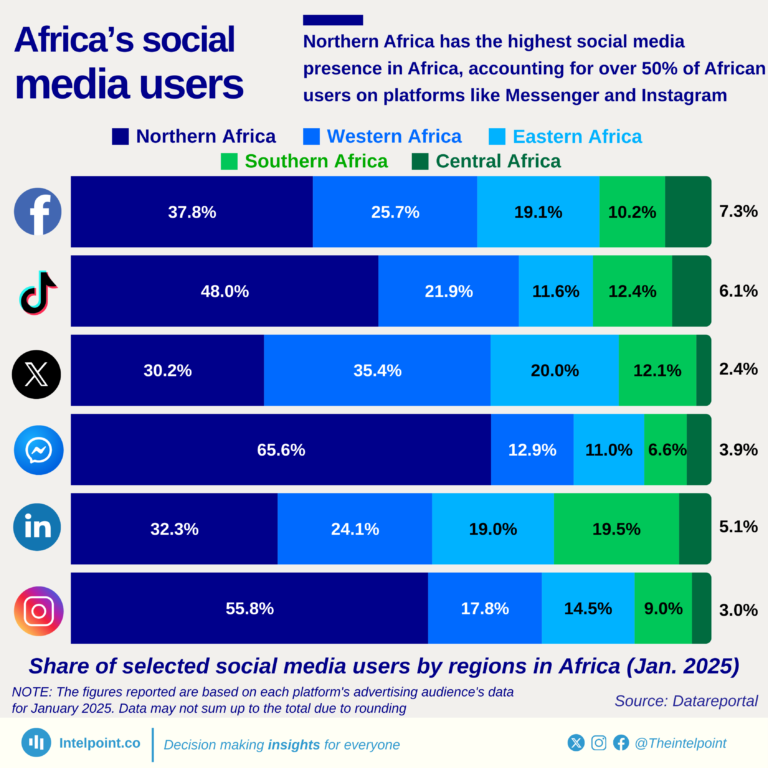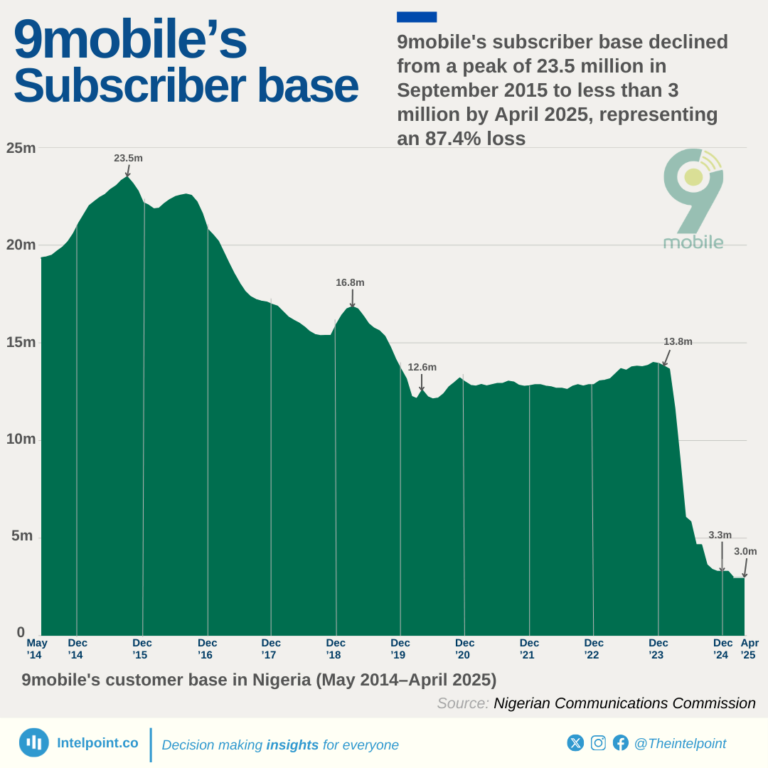
In 2008, only 0.5% of people in Liberia had Internet access. By 2022, that number grew to 30.1%, marking significant progress over 15 years.

Nigeria has made strides in metering electricity customers, but progress is slow, with nearly 7.1 million unmetered customers as of June 2024.
Despite customer numbers doubling from 6.5m to 13m (June 2015-2024) and a 95.4% rise in metered customers, the percentage of unmetered customers increased to 54.4%.
Metering must outpace customer growth to end estimated billing.

In 2023, global vehicle production surged, led by China with over 30 million vehicles — a 12% increase from 2022.
The US and Japan followed, holding 11% and 10% shares, respectively.
Global output rose 10%, reaching 93.55 million vehicles, up from 85.02 million in 2022.
Only two African countries — South Africa and Morocco — made the top 25, highlighting the continent's developing automotive sector.

Argentina's inflation rate dropped to 209% in September 2024 from 237% in August, slightly easing costs. Despite this, the South American country still has the highest inflation rate of the 184 countries and territories ranked.
Nigeria's inflation rate stands at 32.7%, ranking 9th globally and 4th in Africa after South Sudan, Zimbabwe, and Malawi.

Over the years, Nigeria has seen significant increases in electricity revenue.
Revenue surged from ₦129 billion in 2015 to ₦683 billion in H1 2024, while the number of customers has doubled from 6.5 million to 13 million.
This 428% increase in revenue highlights rising consumption and tariff hikes.

In 2017, MTN Uganda recorded a 58% increase in profit with only a 9% revenue increase. On average, the telco had an 18.2% yearly increase in profit between 2016 and 2023, while revenue growth was at 9.2% yearly.

The population of Nigerian-born immigrants in the US has more than doubled in nearly two decades, growing at an average rate of 4.8% per year.
By 2023, the number reached 476k, up from just under 200k in 2006 — a 141% growth.
Nigeria has been leading Africa in immigrant numbers in the US, ranking 22nd globally.
Rising immigrant numbers could strengthen remittance flows back to Nigeria.
